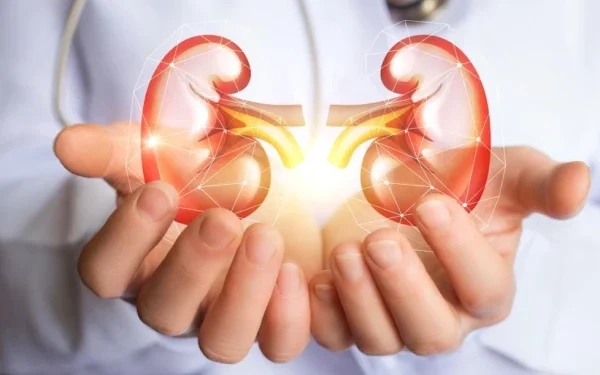Introduction
Chronic Kidney Disease (CKD) is a progressive condition in which the kidneys gradually lose their ability to filter waste and excess fluids from the blood. While CKD primarily affects kidney function, its impact extends far beyond the renal system. One of the most serious consequences of CKD is its connection to cardiovascular disease (CVD). In fact, people living with CKD are significantly more likely to develop heart-related issues, including heart attacks and strokes. Understanding how CKD contributes to CVD is essential for developing better prevention and treatment strategies.
What is Chronic Kidney Disease (CKD)?
CKD is defined as a long-term condition where the kidneys do not function properly over a period of time. The kidneys are vital organs that filter waste, regulate blood pressure, and maintain electrolyte balance. When kidney function declines, waste products can accumulate in the blood, leading to a wide array of health complications.
Causes of CKD
Several factors can contribute to the onset of chronic kidney disease. The two most common causes are:
- Diabetes: High blood sugar levels over time can damage the blood vessels in the kidneys.
- Hypertension (High Blood Pressure): Increased pressure can harm kidney tissues and reduce their filtering ability.
Other causes include genetic conditions, autoimmune diseases, recurrent kidney infections, and prolonged use of certain medications.
The Hidden Link: CKD and Heart Health
The relationship between CKD and cardiovascular disease is both complex and well-documented. According to medical research, individuals with CKD are at a much higher risk of developing cardiovascular complications compared to the general population. In fact, many CKD patients are more likely to die from heart disease than from kidney failure itself.
How CKD Contributes to Cardiovascular Disease
A number of mechanisms explain why CKD increases the risk of CVD:
- Increased Blood Pressure: Damaged kidneys can lead to fluid retention, which in turn raises blood pressure—a major risk factor for heart disease.
- Build-up of Toxins: When kidneys fail to filter properly, toxins accumulate in the bloodstream and contribute to inflammation and vascular damage.
- Anemia: Reduced kidney function often results in lower production of erythropoietin, a hormone that stimulates red blood cell production. Anemia places additional stress on the heart.
- Calcium and Phosphate Imbalance: CKD can lead to mineral imbalances, contributing to the hardening (calcification) of blood vessels.
New Research: The Role of Extracellular Vesicles
A recent study led by Japanese researcher Takaki Kodai and his team has shed new light on how CKD may directly lead to heart and blood vessel damage. The researchers focused on structures in the blood called extracellular vesicles (EVs). These are tiny, membrane-bound particles released by cells that act as messengers, delivering molecular signals from one cell to another.
In individuals with CKD, these EVs appear to carry harmful messages that negatively influence the behavior of vascular smooth muscle cells. These muscle cells, which normally help maintain the structure and flexibility of blood vessels, can become dysfunctional when they receive damaging signals from EVs.
The study found that this communication leads the muscle cells to undergo abnormal changes, which can result in the hardening of blood vessels—a hallmark of cardiovascular disease.
Vascular Calcification and Arterial Stiffness
One of the key findings from this research is the role of EVs in promoting vascular calcification. This process involves the deposition of calcium in the blood vessels, which makes them stiff and less capable of handling normal blood flow. Arterial stiffness increases the risk of high blood pressure, heart failure, and other cardiovascular complications.
Implications for Treatment and Prevention
Understanding the molecular pathways connecting CKD to CVD offers new avenues for treatment. If researchers can identify and inhibit the harmful signals transmitted by extracellular vesicles, they may be able to slow or even prevent cardiovascular damage in CKD patients.
Some potential strategies include:
- Targeted Drug Therapy: Developing drugs that block harmful signaling pathways.
- Lifestyle Interventions: Encouraging healthy diets low in sodium and phosphate to reduce vascular calcification.
- Early Detection and Management: Monitoring EV levels could serve as an early indicator of cardiovascular risk.
Managing CKD to Protect Heart Health
Preventing cardiovascular complications begins with effective CKD management. Here are some key steps:
- Control Blood Pressure and Blood Sugar: Keeping these under control can slow the progression of CKD and reduce cardiovascular risk.
- Regular Monitoring: Routine check-ups can detect early signs of heart disease.
- Medications: Doctors may prescribe medications to manage blood pressure, cholesterol, and anemia.
- Healthy Lifestyle: Quitting smoking, maintaining a healthy weight, and regular exercise can significantly improve both kidney and heart health.
Conclusion
Chronic kidney disease is more than just a kidney problem—it’s a major contributor to heart disease and related complications. With growing evidence pointing to the role of extracellular vesicles in vascular damage, researchers are hopeful about finding new ways to interrupt this dangerous connection. For now, managing CKD with lifestyle changes and medical treatment remains the best approach to safeguarding both kidney and heart health. As research continues to evolve, a deeper understanding of these mechanisms may eventually lead to more effective, targeted therapies that benefit millions worldwide.

























